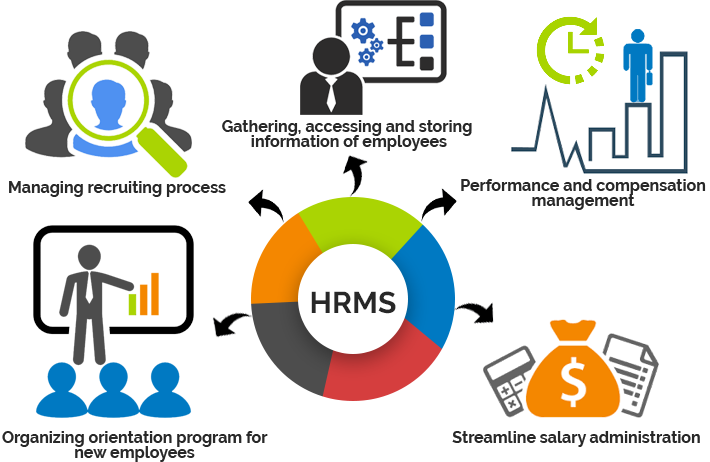
How can we help you today?
Registered Office
Infowan Technologies Pvt Ltd
Mumbai-401107. INDIA.
Contact Details
+91 98201 97205
+91 98201 26871
+91 98670 74415
support@infowan.net
info@infowan.net
What is office management and why is it crucial for modern businesses in 2025? Office management is the foundation of every well-functioning workplace. It involves the planning, coordination, and oversight of administrative operations, ensuring that daily workflows run smoothly and efficiently.
In today's hybrid and fast-paced corporate world, understanding what is office management is more important than ever. As businesses evolve post-pandemic, the role of office managers has expanded beyond traditional clerical tasks. Now, they drive operational success, employee satisfaction, cost control, and digital transformation. Whether you are a business owner, HR professional, or aspiring manager, mastering what is office management can unlock new levels of productivity and growth.

So, what is office management exactly? It is a vital discipline that focuses on handling the administrative functions of an organization. It includes supervising staff, managing schedules, organizing resources, and ensuring operational efficiency across departments.
Office management is different from project or operations management in its focus and responsibilities:
When you ask what is office management, you are referring to the art and science of maintaining a productive, organized, and well-equipped work environment. It ensures that every department, employee, and process runs in harmony.
Office managers also act as communication bridges, helping leadership stay connected with staff and ensuring that goals, policies, and updates reach everyone in time.
To truly understand what is office management, it's essential to know the typical responsibilities of an office manager. These go far beyond answering phones or ordering supplies.
Here are the core responsibilities:

If you're still wondering what is office management, remember—it's a role that balances people, process, and productivity every single day.
When discussing what is office management, it's important to note that it differs based on the industry and structure of the organization.
Here are the common types:
Knowing what is office management in each context helps tailor the tools, policies, and expectations for better performance.
If you want to succeed in this field, understanding what is office management also means developing the right mix of soft and technical skills.
Office managers must lead by example and make fast, practical decisions.
Clear communication across all departments is critical to avoid confusion and delays.
Managing the office budget, vendor payments, and supply procurement is part of the job, often supported by payroll software.
Comfort with HR software, communication tools, spreadsheets, and cloud platforms is non-negotiable.
Prioritizing multiple responsibilities, scheduling meetings, and tracking task completion is crucial.
Quickly adjusting to changes and finding solutions to unexpected challenges.

Anyone who truly understands what is office management knows that a strong office manager is not just organized but also adaptable, tech-savvy, and empathetic.
To build a career in this field, it's essential to go beyond just asking what is office management and take steps toward formal education and skill development.
Recommended educational paths:
Certifications:
Understanding what is office management also involves staying up to date with new tools, trends, and technologies through continuous learning.
A common follow-up to "what is office management" is "what does it pay?" Salaries vary depending on location, experience, and industry.
| Industry | Salary Range (Annual) |
|---|---|
| Corporate Offices | $50,000 to $75,000 |
| Medical Offices | $45,000 to $70,000 |
| Legal Offices | $55,000 to $80,000 |
| Remote/Virtual Offices | $60,000 to $85,000 |

Career Outlook:
Understanding what is office management can open up a wide range of job paths and professional growth, especially for those who embrace tech and leadership skills.
No discussion on what is office management in the modern world is complete without highlighting the digital tools that power it.
Like InfowanHR for managing payroll, attendance, leave tracking, and employee data
Such as Notion, Trello, and Monday.com to track tasks and deadlines
Like Google Drive and Dropbox for document sharing
Like Microsoft Teams, Slack, and Zoom for meetings and collaboration
Integrated with mobile apps for real-time attendance monitoring
Tools like DocuSign for electronic signatures and document workflows
A good office manager who understands what is office management must not only use these tools but optimize them to reduce manual work and improve overall efficiency.
Still wondering what is office management and why it's so vital? Here's how it directly impacts business success:
Ultimately, mastering what is office management is essential for any business that wants to scale without chaos.
Say goodbye to outdated spreadsheets and paperwork. InfowanHR is your all-in-one HRMS solution to manage payroll, attendance, leave, and expenses. Streamline your operations and boost team productivity—just like over 15,000 satisfied clients across 4 countries have already done.
Request a Free Demoor call us at +91 98201 97205 to talk with our experts today.
In 2025, knowing what is office management goes far beyond managing files and answering phones. It's about leading teams, managing tools, aligning resources, and driving strategy. As businesses embrace remote work, automation, and digital transformation, the role of office managers becomes more central than ever.
Whether you're an employer trying to streamline operations or a professional looking to build a career, understanding what is office management gives you a competitive edge. Equip yourself with the right tools, skills, and mindset to lead your workplace into the future.
Q1. What is office management in simple terms?
It is the organization and coordination of office activities to ensure efficiency and productivity in the workplace.
Q2. What is the main role of office management?
The main role is to manage administrative tasks, support staff, and ensure smooth day-to-day operations.
Q3. What is office management software used for?
It is used for managing payroll, attendance, leave tracking, employee data, and resource planning.
Q4. What is the difference between office management and operations management?
Office management focuses on daily administrative functions, while operations management deals with broader business processes and production.
Q5. What is office management in the healthcare industry?
It involves managing appointments, patient records, insurance claims, and compliance in clinics or hospitals.
Q6. How can I learn office management?
You can take formal courses, certifications, or online training programs on platforms like Coursera and LinkedIn Learning.
Q7. What are the qualities of a good office manager?
Strong communication, leadership, organization, problem-solving, and tech skills are essential.
Q8. Why is office management important for small businesses?
It helps maintain order, optimize resources, improve team performance, and ensure legal compliance.
Best HR Software in India | Top HR Software in India | What is an HR System? | Online HR Management Software | Best Payroll Software in India | Employee Payroll Management System | What is a Payroll System? | What is Payroll? | Payroll in HR | What is a Payroll Company? | What is Payroll Management? | Payroll Processing Explained | What is HRMS? | Understanding HRMS Systems | How to Use HRMS Software | Role of HR in a Company | What is HR Management? | Employee Engagement in HR | HR Recruitment Explained | What is Business Management? | Management Information System | Human Resources Management | 7 Roles of HRM | What is Office Management? | What is Human Resources? | Meaning of HR | Top HR Interview Questions | What is HR? | HR Analytics Explained | What is HR Compliance? | What is Payroll Software? | Top 10 Payroll Software in India | Human Resource Management Guide | Best HRMS System | HR Management System Software | HR Software for Small Business | Best HRMS Employee Self Service | Functions of HRM